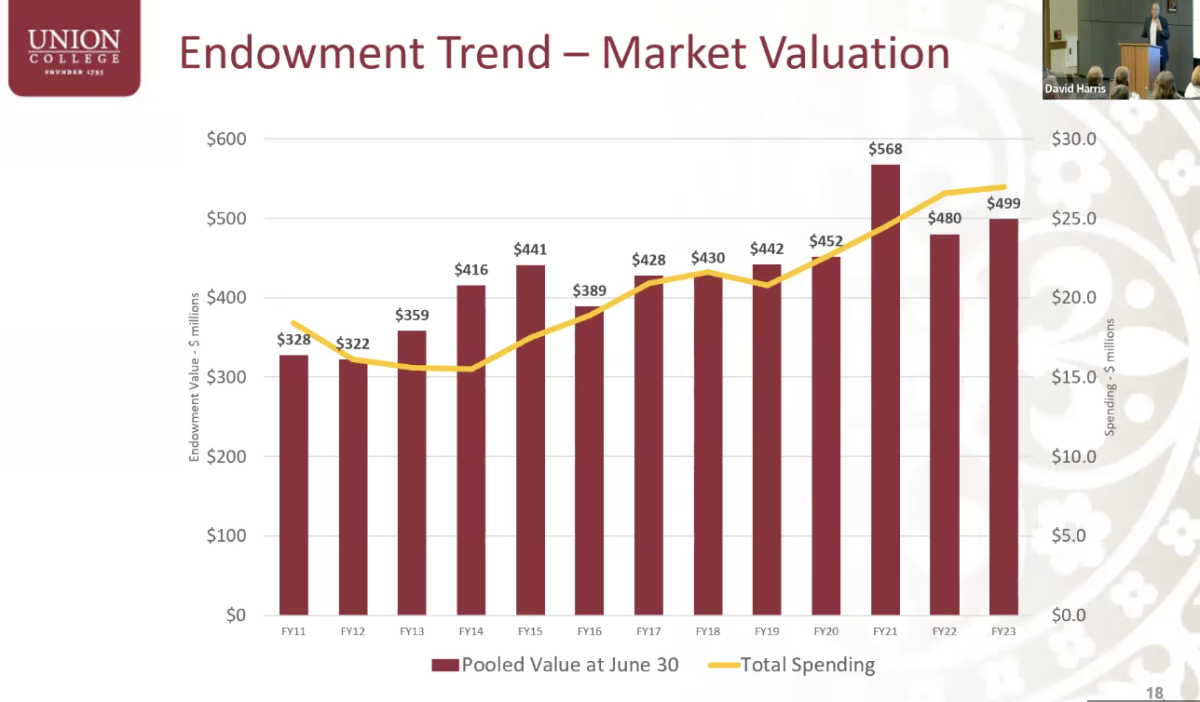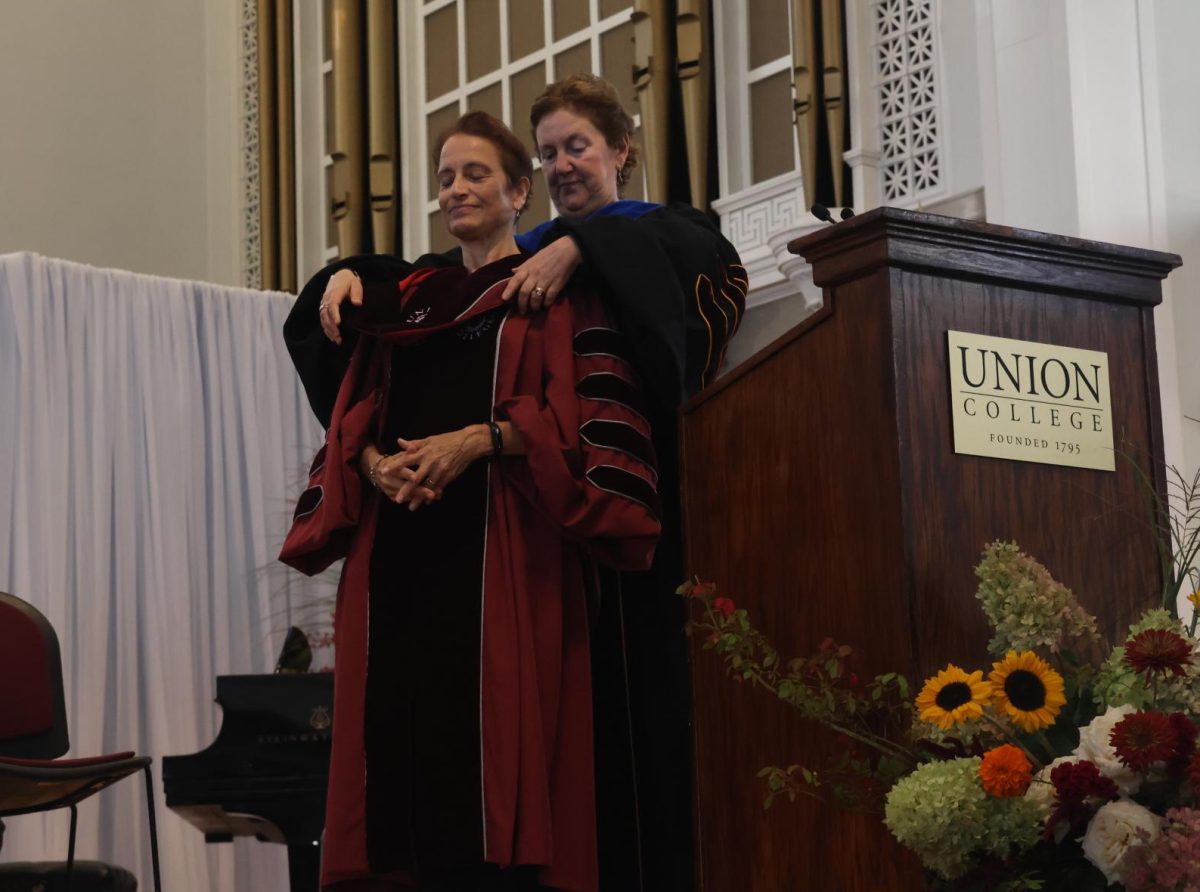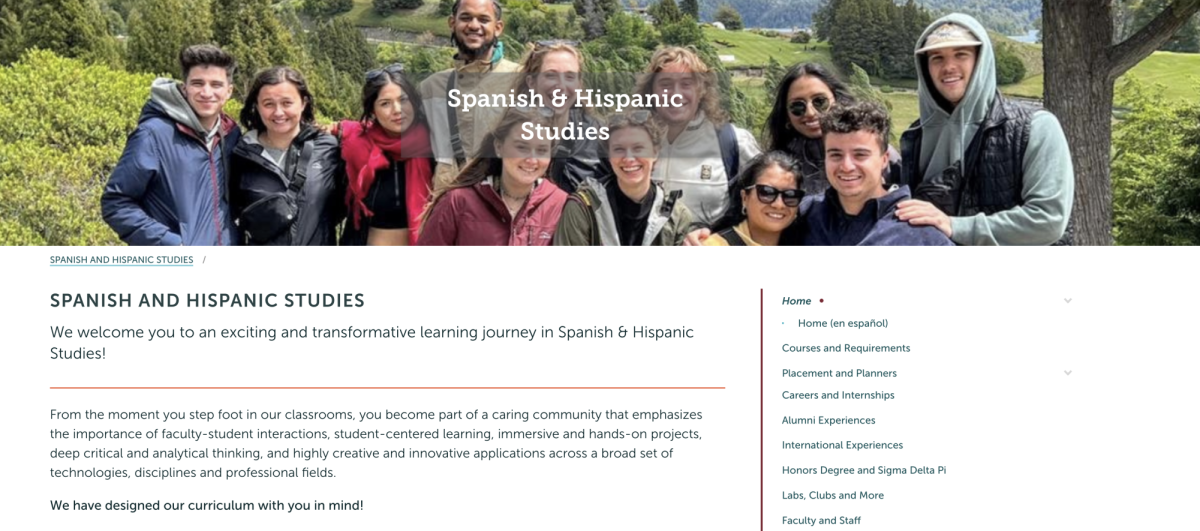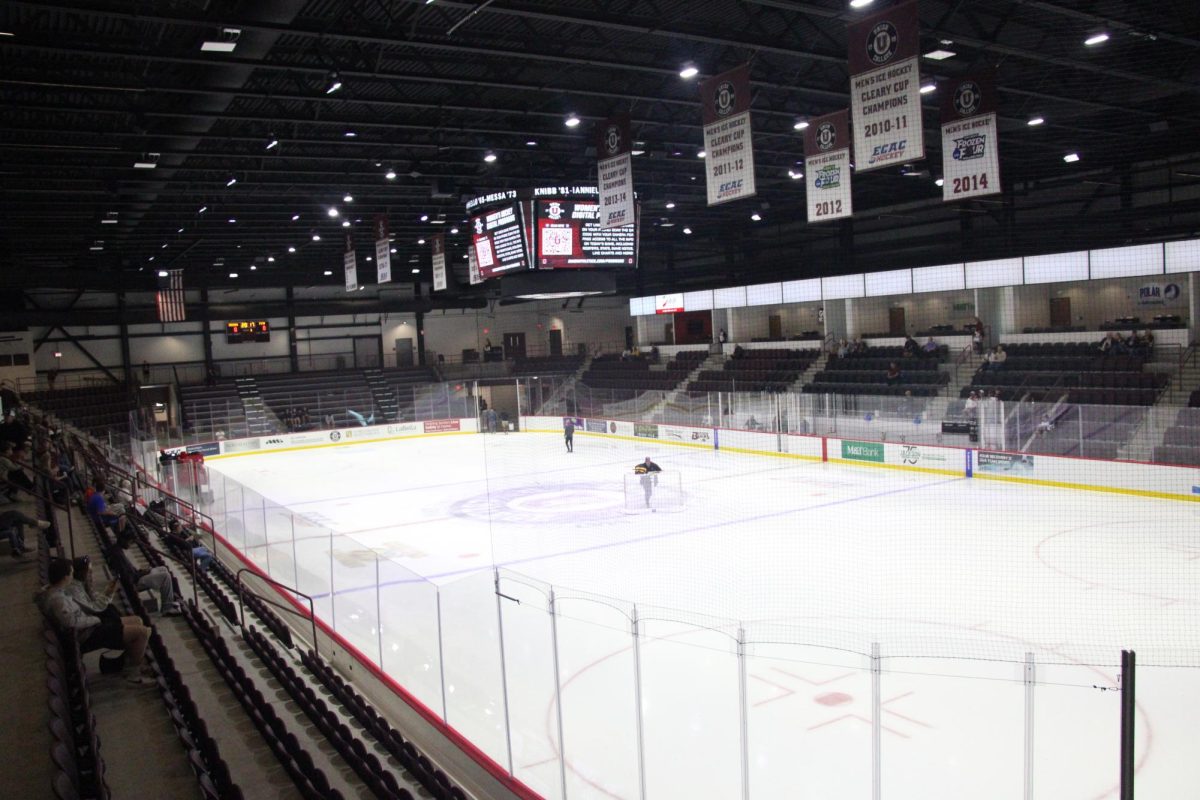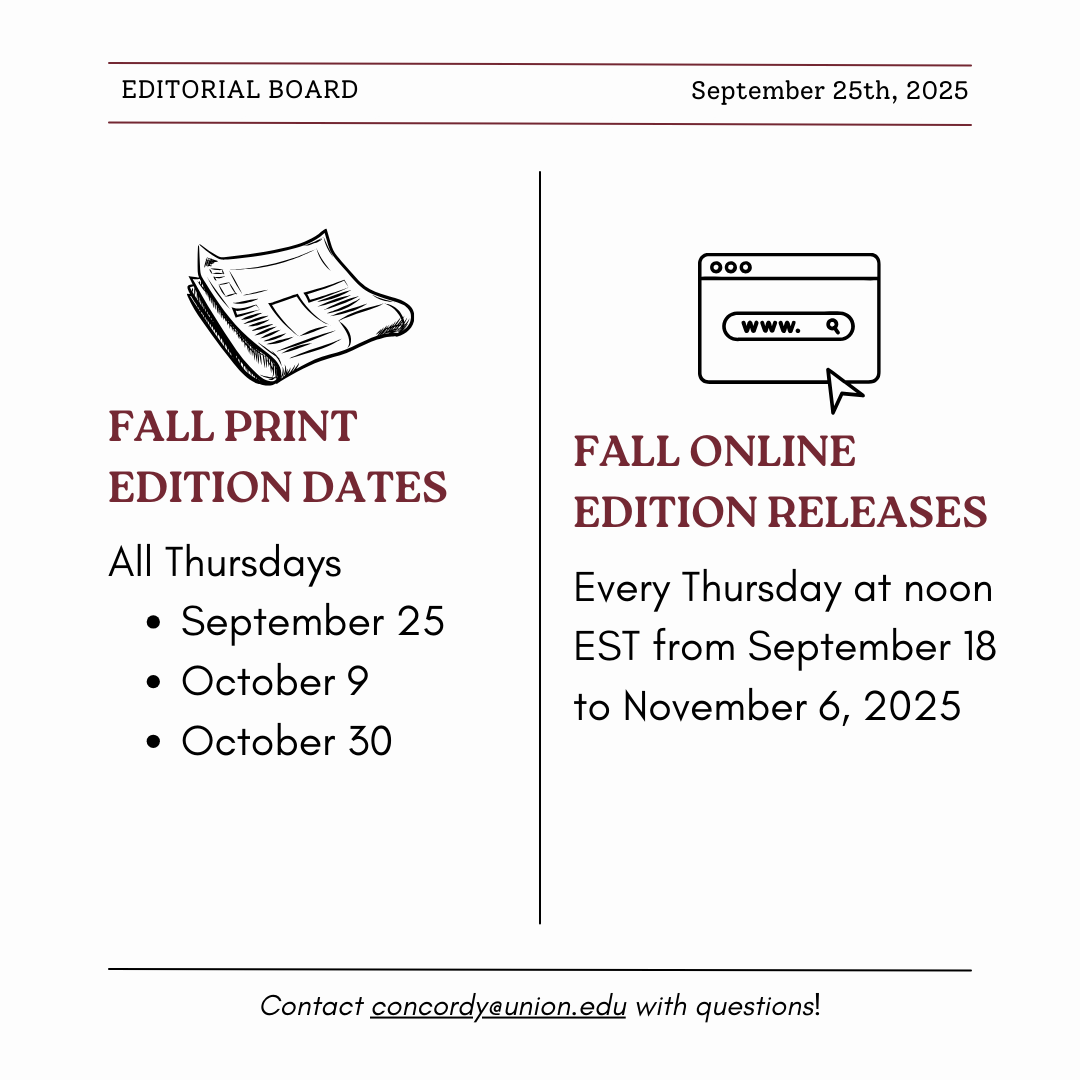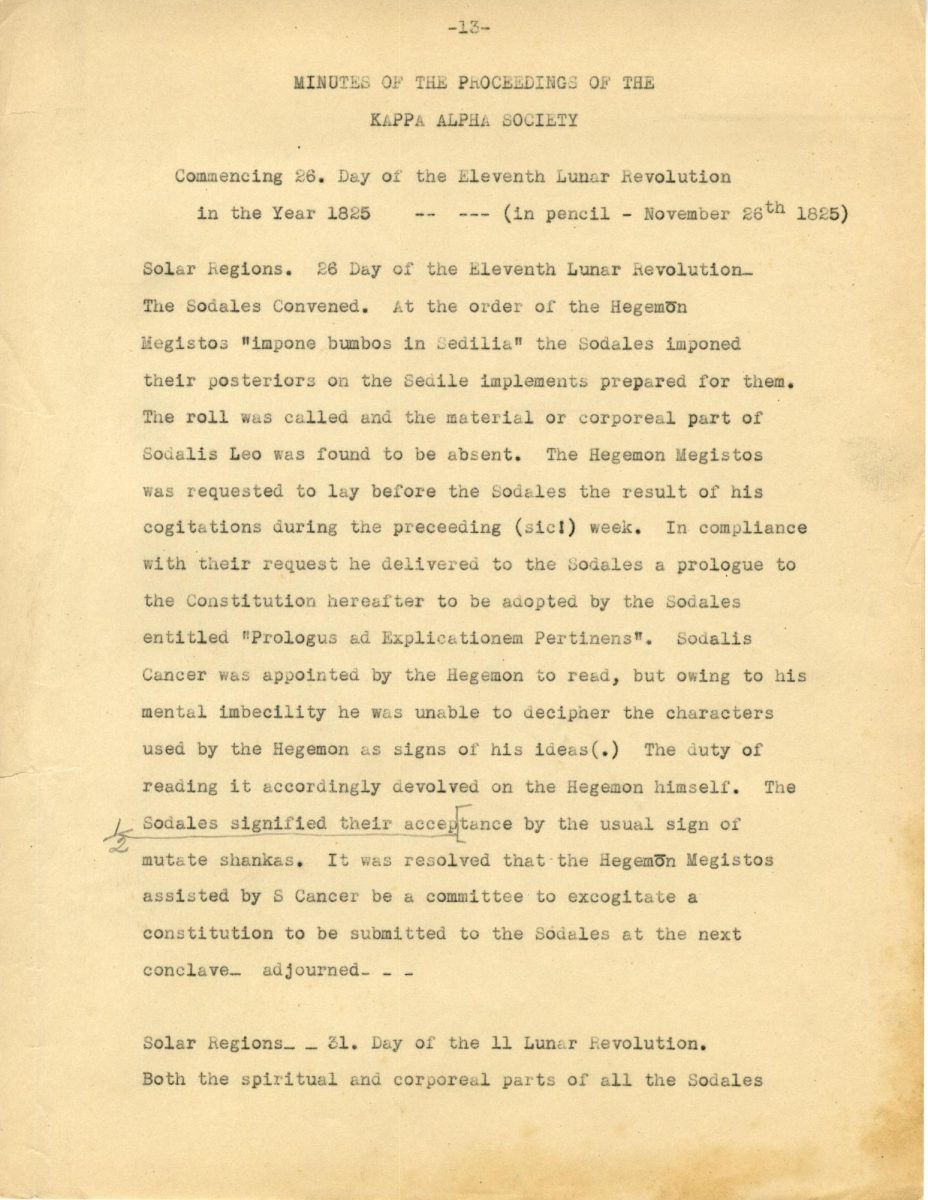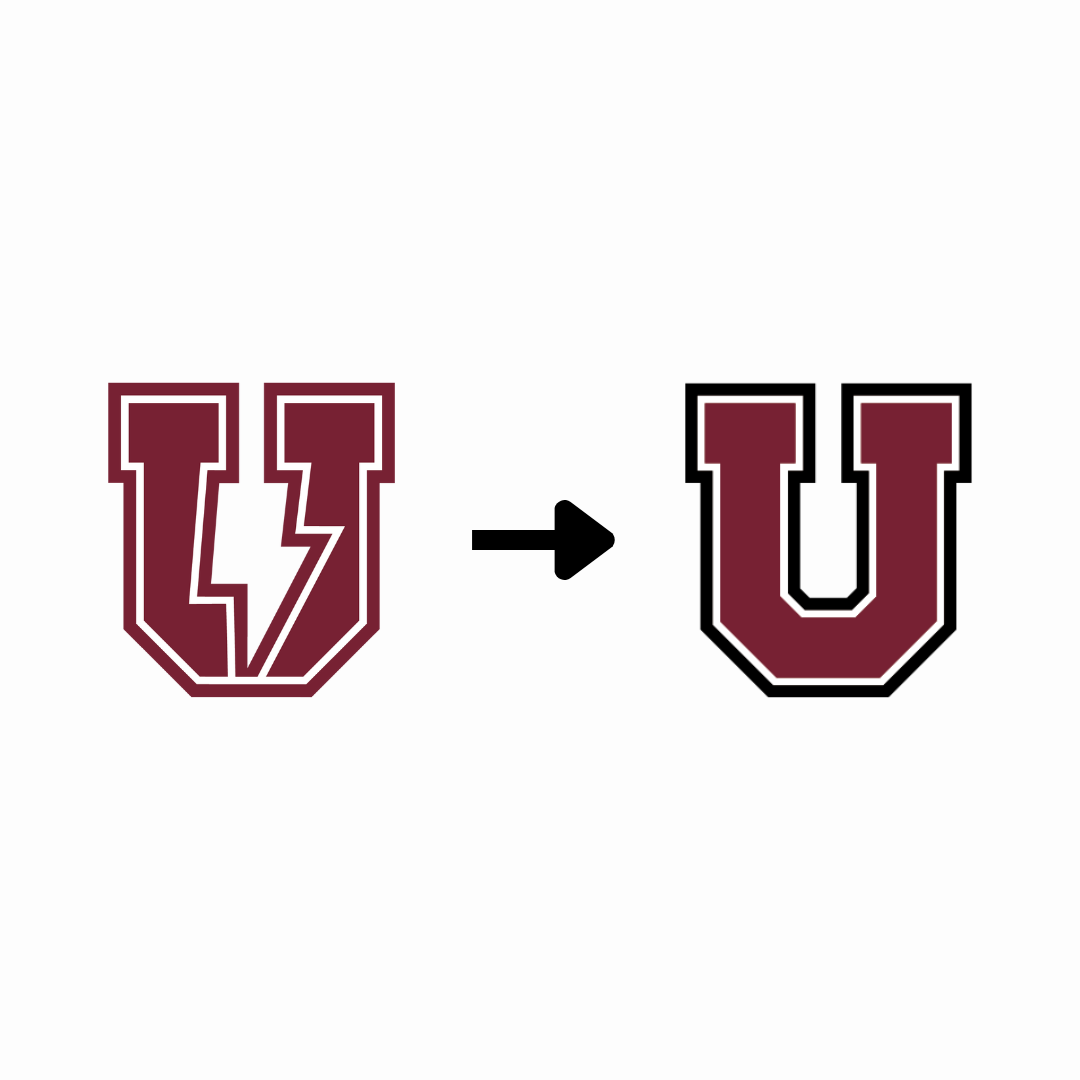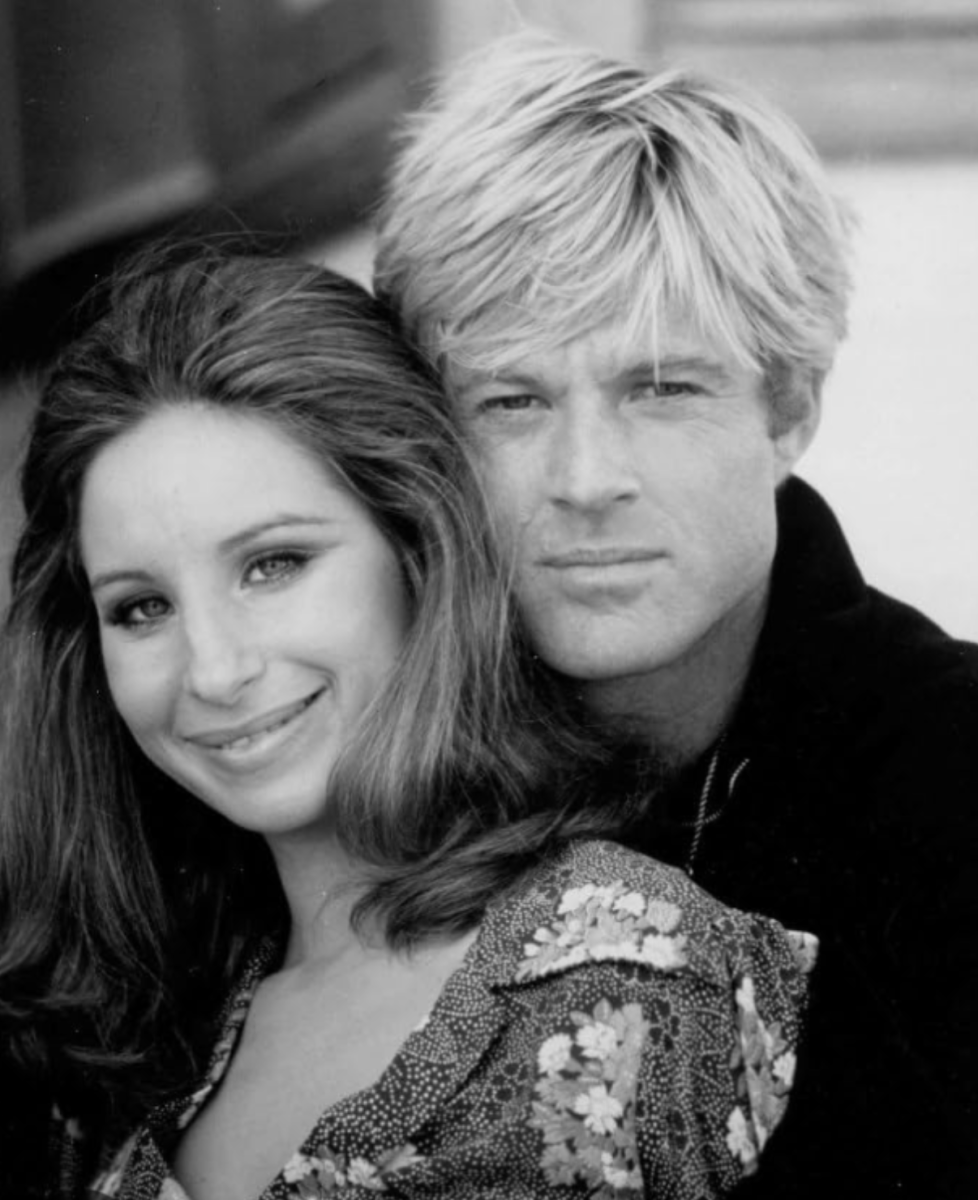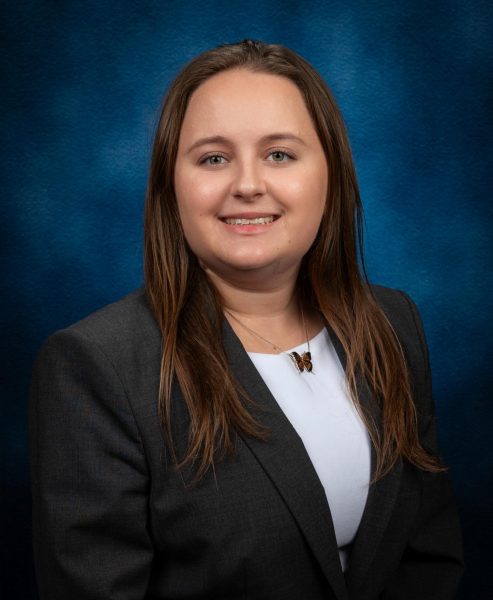On Monday, January 29, Union College President David Harris gave his annual “State of Union” presentation to the campus community. This presentation reflects on administrative changes made during the past calendar year to the college, and the college’s outlook on future challenges.
Challenges in Higher Education
Harris discussed the college’s 2020-2025 strategic plan, which outlines the objectives the college aims to achieve in the course of that time frame. He explained that the plan is focused on two goals: “Union will strengthen and enhance a vibrant community of learners, scholars, and teachers that blends the liberal arts and engineering, transcends disciplinary boundaries, bridges classroom and immersive experiences, and engages and embraces diverse experiences and perspectives,” and the college “will ensure that it has the resources required to thrive in a changing higher education landscape,” according to the presentation.
Harris emphasized that the future of Union lies in the synergy “of ideas, approaches, individuals, and groups that are often thought to be at odds with one another, but which combine to propel this school and its people forward.” This entails combining liberal arts and engineering, students and alumni, tradition and innovation, and more.
The purpose of this strategic plan is to address current and anticipated challenges faced by the college. The main challenges consist of less students attending college, the gradually climbing cost of tuition, the return on investment of a college degree from Union and in general, the fact that other colleges are offering significant scholarships to attract students away from Union. The effects of these challenges include, but are not limited to, enrollment issues, the need for larger financial aid amounts from Union, and challenges in prioritizing investments in the college.
Tuition at Union for the 2023-2024 academic year is $82,845, which is consistent with other private universities and liberal arts colleges. By contrast, the median household income in the US is $74,580, meaning that less than half of the US population can afford Union. This impact has particularly affected other colleges such as Cazenovia College and the College of St. Rose, which are closing due to budget issues. Additionally, the University of Chicago is facing a 23% budget deficit and Ithaca College has seen a 26% decline in enrollment. Enrollment declines result in significant budget issues for colleges and universities because the majority of a college’s revenue comes from tuition and fees. As a result, other universities can offer significantly better financial aid than Union, thus attracting prospective students away from the college.
A challenge that the college has been particularly focused on is the demographic cliff, which is the decline in birth rate around 2008, resulted in fewer college goers from 2025-2029. College enrollment across the country is expected to decline by 15% during this time frame, putting challenges on college operating budgets. In addition, scandals involving the Presidents of Harvard and the University of Pennsylvania, where they were criticized for their remarks on antisemitism at a US Senate hearing, have led to declines in applications, where early action applications to Harvard declined 17%.
This can create a ripple effect where prospective students are less likely to apply to other elite colleges and universities. Public relations crises like these have led to a decline in Americans’ confidence in higher education, according to a Gallup poll. In 2015, 57% of Americans said that they had a great deal or quite a lot of confidence in elite institutions, but this figure dropped to 36% in 2023.
Status of Union
Since January of 2023, the administration has seen several key staffing changes: Tye Deines became the college’s Chief Human Resources Officer, Maura Mack Hisgen was promoted to the Vice President for College Relations, Julie Greifer Swidler ‘79 was elected to be the Chair of the Board of Trustees, and Blair Raymond became the Assistant Secretary to the Chair of the Board of Trustees, Director of Strategic Partnerships and Projects. These officials have significant influence over the high workings of the college.
For the 2023 fiscal year, the college has a $140 million operating budget. This is composed of the college’s revenue, with 66% coming from the comprehensive fee, 20% from the endowment, 6% from gifts, and 8% from other sources. The $140 million operating budget is spent on three main expenses: 61% on salaries, wages, and benefits, 30% on supplies and services, and 9% on debt service.
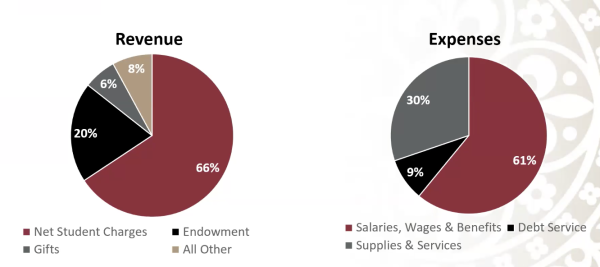
In addition, the college’s endowment has increased to $499 million in Fiscal Year 2023, from $480 million in Fiscal Year 2022. It is also important to note that this significantly underperforms its investment benchmark, the S&P 500. During the 2023 fiscal year, the S&P 500 saw a 17.7% return on assets, but Union’s endowment saw a 3.95% return. However, the board of trusteees, who manages the endowment, plans to make changes to the investments, according to Harris. In addition, the college completed its 2015-2023 capital campaign, which raised $316 million for various college projects.
Unlike other colleges, Union has not seen a significant drop in enrollment. From 2018 to 2023, Union has seen a net 5% decrease in enrollment, lower than other colleges. This decline is primarily attributed to the dip in enrollment for the class of 2024 due to the COVID-19 pandemic. However, there has not been a significant drop in net student charges, which make up 66% of the operating budget. In Fiscal Year 2016, the net student charges amounted to $90 million, and these charges amounted to $89 million for Fiscal Year 2023.
Significant Changes at Union
The college made efforts to expand its offerings in engineering and computer science to attract new students. During Fall 2023, the college reintroduced the Civil Engineering major, and established an Environmental Engineering major, along with department chair Carolyn Rodak. The college also named two faculty members, Andrew Burkett and Ashok Ramasubramanian, as the deans of the Templeton Institute for Engineering and Computer Science.
Next, in the era of Artificial Intelligence, the college is focused on preparing students for the future of work and life. AI is influencing the work that Union students, staff, and alumni engage in, and higher education changes slowly, said Harris. The college has revised its general education curriculum to keep pace with this era of change, which emphasizes global connections and justice, equity, and identity.
Additionally, Harris discussed the plan to move Union’s Division 1 Men’s and Women’s Ice Hockey teams to a new arena in Mohawk Harbor, away from the current facility on campus. Harris explained that this is part of Union’s effort to brand itself as an academic institution with hockey, rather than being solely known for hockey. Moreover, constructing this facility on campus would be more costly with limited parking available.
Finally, the college launched a new mascot and nickname in the fall term, the Garnet Chargers and Charger, the dog. This mascot and nickname has gradually gained traction on campus, from nicknames of players on sports teams to a personalized picture of Charger the Dog on admitted students’ acceptance letters.
The college plans to refine its current initiatives for the next calendar year, and adjust them accordingly. President Harris will deliver another speech around the same time next year, providing further updates to the campus community on these developments.


